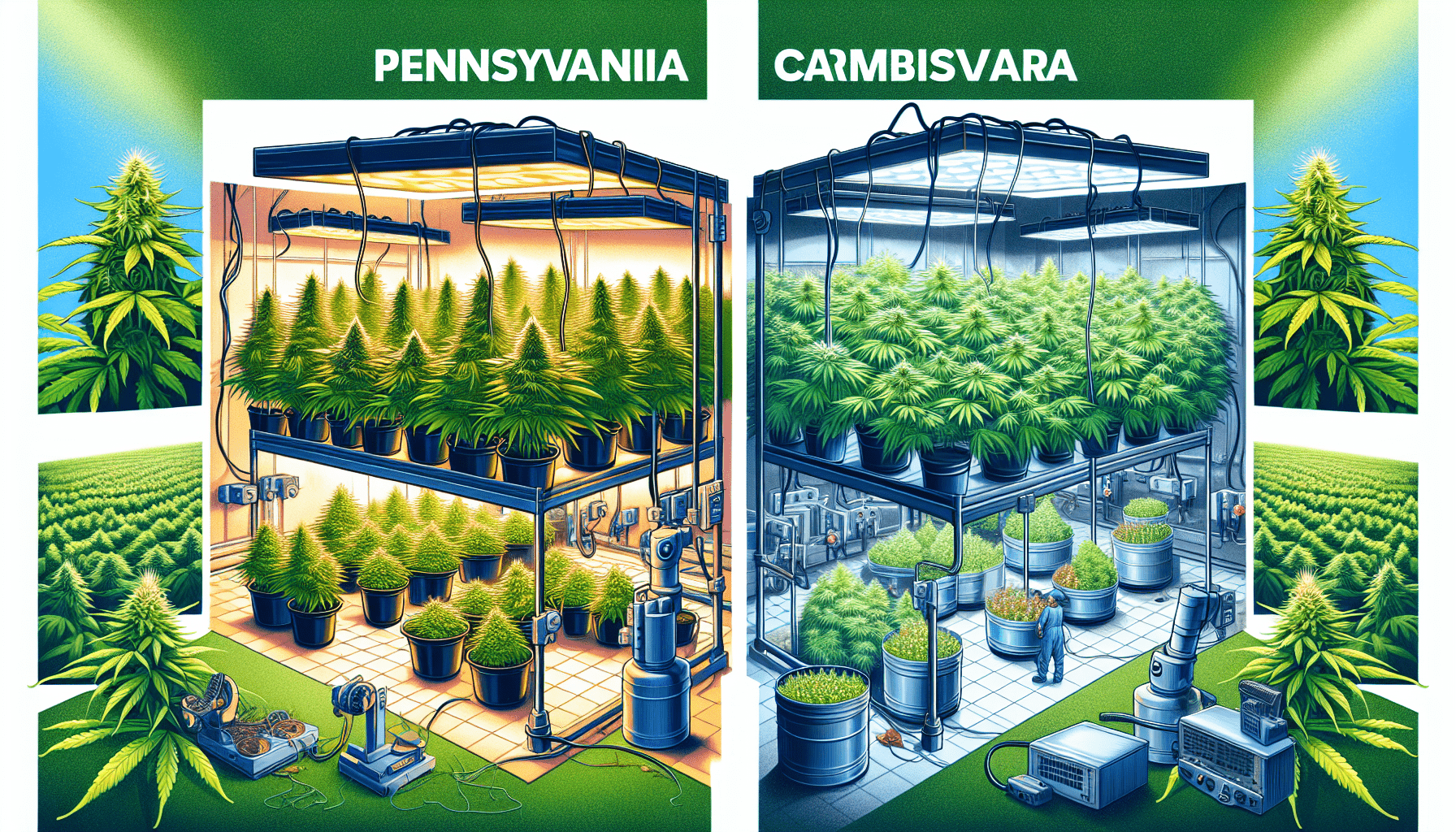How To Start A Commercial And Personal Grow In Pennsylvania?
Introduction
If you’re interested in starting a commercial or personal grow operation in Pennsylvania, you’ve come to the right place! Pennsylvania has strict regulations when it comes to growing cannabis, whether it’s for commercial purposes or personal use. This guide will break down the steps you need to take to get started in the industry.
Understanding The Regulations
Before you begin your commercial or personal grow operation in Pennsylvania, it’s essential to understand the state’s regulations regarding cannabis cultivation. The Pennsylvania Department of Health oversees the Medical Marijuana Program, which includes regulations for growers. It’s crucial to familiarize yourself with these regulations to ensure that you are compliant with the law.
Applying For A Grower’s License
To start a commercial grow operation in Pennsylvania, you will need to apply for a grower’s license through the Pennsylvania Department of Health. The application process can be extensive, so be prepared to provide detailed information about your operation, including security measures, cultivation techniques, and business plans. It’s essential to submit a thorough application to increase your chances of approval.
Zoning and Land Use
Before setting up your grow operation, you must ensure that your location complies with local zoning laws and land use regulations. Some areas in Pennsylvania have specific zoning requirements for cannabis cultivation facilities, so it’s crucial to research these regulations before purchasing or leasing a property. Additionally, you may need to obtain a zoning permit or special use permit to operate a grow facility legally.
Inspecting Your Facility
Once you have secured a location for your grow operation, you will need to have your facility inspected by the Pennsylvania Department of Health. The department will assess your cultivation area, security measures, and record-keeping practices to ensure that you meet the state’s requirements for a grower’s license. It’s essential to address any issues identified during the inspection promptly to avoid delays in the licensing process.
Cultivation Techniques
Whether you’re starting a commercial or personal grow operation, it’s crucial to understand proper cultivation techniques to ensure a successful harvest. Pennsylvania has specific guidelines for cultivation, including requirements for lighting, ventilation, pest control, and nutrient management. It’s essential to familiarize yourself with these guidelines and implement best practices to maximize the quality and quantity of your cannabis crop.
Security Measures
Security is a top priority for cannabis growers in Pennsylvania, whether you’re operating a commercial facility or growing for personal use. The state has strict regulations for security measures, including surveillance cameras, alarm systems, and restricted access to cultivation areas. It’s essential to implement robust security measures to protect your crop and comply with the law.
Record-Keeping and Compliance
As a cannabis grower in Pennsylvania, you are required to keep detailed records of your cultivation activities to ensure compliance with state regulations. This includes tracking the cultivation process from seed to sale, documenting inventory levels, and maintaining records of pesticide and fertilizer use. It’s essential to keep accurate and up-to-date records to demonstrate compliance during inspections by the Pennsylvania Department of Health.
Environmental Impact
Cannabis cultivation can have a significant environmental impact, so it’s essential to consider sustainability practices when starting a grow operation in Pennsylvania. This includes using energy-efficient lighting, implementing water-saving techniques, and minimizing waste production. By adopting environmentally friendly practices, you can reduce your operation’s carbon footprint and contribute to a cleaner, healthier environment.
Selling Your Harvest
Once you have successfully grown and harvested your cannabis crop, you will need to sell it through a licensed dispensary in Pennsylvania. It’s essential to familiarize yourself with the state’s regulations for selling cannabis, including packaging and labeling requirements, testing procedures, and transaction tracking. By following these regulations, you can ensure a smooth and compliant sales process.
Conclusion
Starting a commercial or personal grow operation in Pennsylvania can be a rewarding but challenging endeavor. By understanding the state’s regulations, applying for a grower’s license, implementing proper cultivation techniques, and maintaining compliance with environmental and security measures, you can set yourself up for success in the cannabis industry. Remember to stay informed, stay compliant, and stay dedicated to cultivating high-quality cannabis in Pennsylvania.





